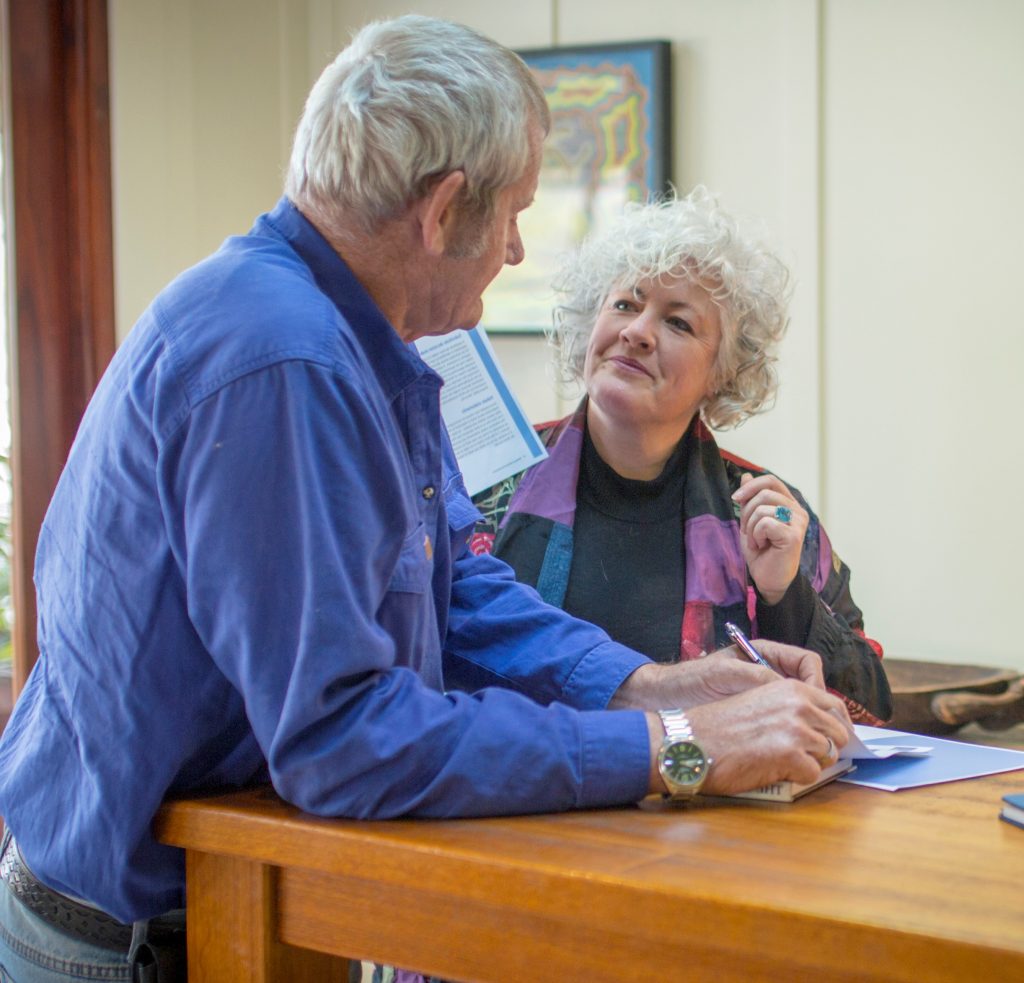Notes On A (Presumed) Death By Suicide – By Dr Annetta Mallon
April 16, 2019



 Other
Other

Unexpected deaths are some of the most difficult and challenging to deal with for those left behind, and as we have had this occurrence recently in my personal circle I thought it timely to consider some of the things we can expect to have happen emotionally and time-wise, as well as a few observations about how to be kind and appropriate to those affected by a sudden death.
N.B.: If you, or someone you know, is deeply depressed and/or contemplating suicide contact LifelineAustralia on 13 11 14. Lifeline Australia specialise in crisis support and counselling, particularly suicide, and highly-trained telephone crisis support people are available 24 hours a day.

Here is some background context to why I chose to write about suicide and reflections about this type of death as my first blog topic of focus after weeks of illness: A member of the family of someone I know (a friend) was found dead, so I am going to emphasise at this stage that suicide is presumed, but not determined at the time of writing. So, as the death was unexpected and unattended, currently the immediate family members are awaiting the outcome of a toxicology report, and cause of death is presently unknown. The person who died did attempt suicide several weeks ago, and although there is no note there was a photograph of an important family member on the table where the body was found. All family members were informed of the death via a blast SMS text message; the person who sent the text message was not the person who found the body.
There is a lot going on here in this scenario, and in my life as a result of this news – and while I was supporting my friend by talking and listening to various aspects of this series of occurrences – it occurred to me that putting my reflections, perspectives, and responses down in a post might be useful to other people. My intention is that as we gain better understandings of suicide (presumed or otherwise) we loosen the grip of stigma, shame, guilt (maybe), and taboo around this type of death. Also, I am an End of Life Consultant who specialises in information transfer, so this seems a good fit for today’s writing.
LANGUAGE. IT MATTERS: A common response to death by suicide is a heightened level of immediate denial, and – often – a misuse of language. “I cannot believe [insert name here] would commit suicide!” is not an uncommon response given the freighting of religious taboo around death my one’s own hand that we still live with despite decades of time since the law reflected a different position. Nevertheless, ‘committed suicide’ is an outdated and inappropriate response, and – potentially – quite a damaging one, so I’m going to begin here with language as we need to cease and desist with the blame/shame language of ‘commit’ suicide.
We die by suicide, but as suicide is not a crime (nor is the attempt thereof) in Australia, we do not commit anything. Please use more appropriate language when talking about suicide, particularly around those immediately impacted by a death by suicide (or suspected suicide), as they are dealing with enough at the time both emotionally and materially, so the added explicit guilt and shame of this style of outdated language is unnecessary. If you are unsure of how to talk about the dead person, simply use their name. When conveying the news of a death by suicide to other people it is appropriate to use phrases such as: they died on their own terms | died by their own hand | died by suicide.
Also, please do not press the people close to the deceased for detailed information about how the suicide death was enacted. A) IT IS NONE OF YOUR BUSINESS! B) An ongoing repetition of the details is emotionally and psychologically draining and damaging for the person you ask as this keeps them stuck. For options C), D), E), etc.: see option A), and mind your own business. Many places of work, and all workers within the mental health system, point-blank refuse to divulge details of a death or attempted death by suicide – either verbally or in writing – as there is the possibility of copy-cat actions, so this is another aspect of sensitivity around death by suicide you may wish to keep in mind. I know it sounds tricky, speaking out about suicide to break the taboo whilst navigating sensitively around the needs of the community in general, however if you are empathetic, use the correct, non-judgemental language, and do not delve into specifics talking about a death by suicide then you will probably be fine. Bear in mind, too, that practice makes shifting language easier; the more you talk about death by suicide matter-of-factly, respectfully, and appropriately, the easier it will become for you. Try it and see.

CONVEYING THE NEWS. NEVER TEXT: One of the most difficult aspects of the recent death in my friend’s family is the way the news was conveyed, as the unwrapping of the use of a text message to deliver such unexpected information took a considerable amount of time and energy – both for myself as sounding board, and my friend as recipient of the text. Unless it is absolutely necessary, and honestly I am hard-pressed to think of many sets of circumstances where it might be considered essential to do so, do not send the news of a death via text-message. It’s awful. And in this recent case, incredibly selfish and unnecessary; however the person concerned has a history of centring themselves as the focus of drama and sympathy. Rather than undertake (or delegate, see below) the task of making phone calls – which is a reasonable and sensible option for breaking the news, and one which allows for the recipient to process with the death as the focus of the message – a text message makes the news focus on the sender of the text, and adds layers of disbelief and additional processing to the response of the recipient. Don’t be selfish, and remember that conveying news of a death is not like posting on social media – not EVERYONE needs to know immediately. Following a suicide death there are frequently a few essential calls to make to either close family members, business partners, or best friends; however after making the initial calls it is a good idea to take time out to process shock and initial, raw grief. In a day, or a few days, informing other people will happen and this delay is both fine and nothing to apologise for.
Find a person to tell people either face-to-face, or at least live voice-to-voice – this may mean delegating to one, or sometimes two people, to convey the news. Is there a close neighbour who is a friend that you can ask to make initial call/s? Is there another member of the family who is organised about delivering unexpected and bad news you can turn to? Do you have a good friend you can call on to make the calls for the family? If you are very close to the person who has suicided, consider asking someone less close to make the calls if you need to. Healthy self-care is important when we are in shock and when we are grieving. To offer a non-suicide example, when my grandmother died I went to my mother’s home and took care of the phone calls. My mother was too close to the situation and was too upset, and I had enough distance as a granddaughter to make the calls, or answer call-backs (see below) and give some time to the person I was speaking to for processing. Delegation, in our case, was an appropriate solution for breaking the news.
On a general note of breaking news on the phone: Break the news in the same way you would in person, i.e.: gently. I always ask if the person is sitting down, for example, and where they are – and, possibly, also prefacing with something like: “I have some bad news to tell you”. If they are driving I ask them to call me back, or to tell me when they have pulled over to a stop, turned off the engine, and put the handbrake on. I do this even when the connection to the deceased may seem distant to me – it is best not make assumptions. Also, do not underestimate the power of preparation when disclosing news of a death (suicide or otherwise) to someone in their workplace. When you call the person, if they were very close to the deceased and your only work contact is their phone number, ask them to put their supervisor or manager on the phone first as a ride home or a quiet room may need to be arranged in advance. If you feel weird or uncomfortable calling a mobile phone to do this, discreetly ask for their supervisor or manager’s phone number via the main workplace phone system, or find the supervisor’s contact information on a website. These few extra minutes of your time will pay off, and your kindness will be appreciated by the person concerned.
I never recommend leaving a voicemail message. I still remember the very first death I was informed of: I was in my early 20s, and the news was conveyed fourth-hand on my telephone answering machine. The person who left the message did not think the news was important (they didn’t know my friend, or me all that well), and the sheer casualness of the experience is jarring for me to this day. Ask someone to call you back (or another delegated person if you are sharing this task and you are tired) if you get voicemail instead, then you can convey the news appropriately and as sensitively as possible.

SUICIDE IS NOTHING TO “FIX”. REALLY! None of us will ever really understand what drives some of us to end our lives by our own hand; each set of personal circumstances (including the emotional/inner life, financial and business circumstances, societal pressures and expectations or assumptions about these, awareness of choices, etc) is unique to each individual. My friend spent some time, often returning to the topic after long periods of thought or other conversation, talking about what might have motivated their family member to suicide. I spent a good deal of time working to shift our talk and focus away from what might have been and speculation, to good memories, and plans for the funeral (to be determined as there will be long-distance travel involved) and life moving forward after this death. It took some time, but my friend is an adult with a good deal of life experience, so they did not spend too much time overall trying to ‘fix’ the problem of not knowing what had happened to cause the death of their family member.
Personally – and just like my friend did, when I am supporting someone through their unexpected loss, one of the biggest challenges for me is to try and turn off the part of my own personality that is very, very good at problem-solving, and to quiet my own drive to find ‘an answer’ or ‘a solution’. At times of death by suicide there is no answer as such. However, and this is where things relating to mourning, grieving, and letting go develop additional layers of complexity for the living, we are left with far more questions after a suicide death than we may have after a more ‘natural’, or expected death.
Without wishing to seem that I am minimising the effect of death (which I absolutely do not aim to do. Ever.), processing a death by suicide entails not only the continuing of life with the understanding that there is the beforeand after, as there is with any death, but there is the very seductive and ultimately destructive merry-go-round of “what if” to contend with. Ultimately, it is essential to acknowledge and remember that we could not have done or said anything differently – we could not possibly have changed the outcome of a suicide unless we were physically present in the room with the person (which is usually not the case). We did all we could and said all we could to the person while they were alive. Yet the “what if” merry-go-round is possibly one of the most problematic areas of after-death counselling and support that I have engaged with over the years. This is because we don’t ever know why some of us suicide, and there is nothing that any of us can do to prevent the death of someone who is very determined to end their own life. Yes, counselling can help many of us to feel connected and have better self-understanding which benefits the overall personality of an individual, and drugs can help some of us who have neuro-chemical imbalances – and these are wonderful outcomes. I often wish that we did live in a world where all our outcomes were good ones. But the reality is that, in the end, not all people want to live (and not all people who suicide are mentally ill or disconnected), no matter how much time, energy, or willpower others may direct towards an end-goal of keeping them alive.
Perhaps the essence of the challenge here is that it seems a most human thing to want to have control of as many aspects of our lives as possible – and the aim of attempting to understand why someone died by suicide may help us to feel that control. A concentration of our energies towards ‘understanding’ may seem helpful when we are lost in grief, however a long-term focus on ‘understanding’ may lead to unhealthy obsessions, deep-seated denial, or an unfortunate prolongation of the deep grieving process that may not serve us well in the longer term of our life.
I SHOULD HAVE SEEN IT COMING. MYTH: Sometimes we know that a person is distressed or disconnected, sometimes we don’t because the person who suicides may be very good at masking their true turmoil and feelings. So, no you should not ever think or feel that you are to blame*.
*Unless you are a bully or troll who incites self-harm and/or suicide in others, in which case I sincerely hope the law catches up with you very soon.
EVERYONE WHO SUICIDE LEAVES A NOTE. MYTH:
No, not all people who suicide leave notes – life is not a mystery novel wherein all the fine details are disclosed and tied up neatly, and while some people do leave a final message in writing or recording, not everyone chooses to do so. At this point I would like to point out that suicide notes may or may not be either useful in terms of insight, or that all suicide notes are useful or benign. I know someone who took years to recover from their mother’s suicide note which blamed them (not the other two siblings) directly for her suicide… sometimes the absence of a note in a death by suicide is a not a bad thing. Suicide is painful for the living because there are so many loose ends and questions that remain unresolved. The loosening of the desire to find ‘the answer’ so that we may finally understand what drove the actions of the person we love and care about to such a definitive end – although this aspect can be the most deeply painful part of process of coming to terms with a death by suicide – may be a genuine pathway forward in trying to grieve, mourn, and process as best we may.
Dr Annetta Mallon’s contact details and listing on the directory can be found <here>
This blog was originally posted on the webpage Gentle Death Events & Planning


This is a very well written, informative and helpful article.
Thanks for the great article Annetta.I find myself regularly explaining language around death by suicide, especially the use (or rather misuse) of the term “committed”
Thank you so much for your article, Annetta. There have been many occasions in my life when I would have wished to have had the knowledge that you impart.
So beautifully written. Such impartial, yet heartfelt, knowledge to convey & leave for us to sit with & reflect upon.
Further ‘language’ such as this – both written & verbal are required to open & encourage pathways to deeper understanding – & recognition – of all aspects of the grieving process.